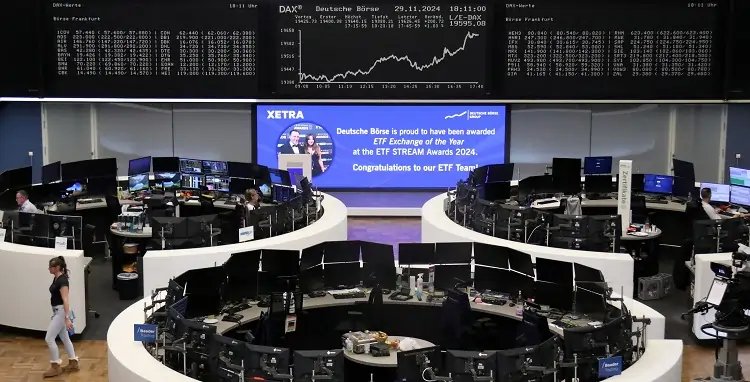MITON’S ANTHONY RAYNER: THINKING OUTSIDE THE BOND BOX
Published by Gbaf News
Posted on December 22, 2017
4 min readLast updated: January 21, 2026

Published by Gbaf News
Posted on December 22, 2017
4 min readLast updated: January 21, 2026

Anthony Rayner, manager of Miton’s multi-asset fund range, comments:
“Some passive equity investors will be comforted, rightly or wrongly, by the fact that their largest holdings are in such big businesses as the likes of Apple, assuming safety and strength in size. However, with bond indices, the largest holdings tend to be the largest debtors. As a result, the more indebted companies, or governments, get more attention than their thriftier counterparts.
“Another reason to be cautious about buying bond indices is that large parts of the government bond markets are yielding less than zero, and this is before we factor in the impact of inflation on returns. For the Eurozone and Japan for example, anything below a seven-year tenor has a negative yield to maturity. For Japan, the 30-year tenor yields only 0.8%: quite a lot of interest rate risk for such a paltry return.
“With official rates globally on the slide for a few decades now, taking interest rate risk has been a one-way trade, and a very beneficial one, whether for passive investors or active managers, like us, that pushed out their duration to take advantage of the powerful trend for lower yields. Importantly, the dynamics of lower and lower rates over time have encouraged the duration of indices to become longer and longer, which potentially adds another sting in the tail for passive bond investors, as and when rates rise. Indeed, the Fed is setting the pace, with three rate rises this year, and expectations for more in 2018.
“As outcome-driven multi asset managers, we currently view bonds as a way of generating a sensible level of income, rather than providing capital gain (as they have done in recent decades), while their ability to act as a ballast to equity risk in portfolios is also limited by their very compressed yield. As a result, we have nothing in Japanese debt and nothing in Eurozone government debt. Instead our preference is for short-dated, good quality US and UK corporate debt.
“Our job is to think outside the bond box, rather than be chained to, or even constrained by, the anatomy of an index.”
Anthony Rayner, manager of Miton’s multi-asset fund range, comments:
“Some passive equity investors will be comforted, rightly or wrongly, by the fact that their largest holdings are in such big businesses as the likes of Apple, assuming safety and strength in size. However, with bond indices, the largest holdings tend to be the largest debtors. As a result, the more indebted companies, or governments, get more attention than their thriftier counterparts.
“Another reason to be cautious about buying bond indices is that large parts of the government bond markets are yielding less than zero, and this is before we factor in the impact of inflation on returns. For the Eurozone and Japan for example, anything below a seven-year tenor has a negative yield to maturity. For Japan, the 30-year tenor yields only 0.8%: quite a lot of interest rate risk for such a paltry return.
“With official rates globally on the slide for a few decades now, taking interest rate risk has been a one-way trade, and a very beneficial one, whether for passive investors or active managers, like us, that pushed out their duration to take advantage of the powerful trend for lower yields. Importantly, the dynamics of lower and lower rates over time have encouraged the duration of indices to become longer and longer, which potentially adds another sting in the tail for passive bond investors, as and when rates rise. Indeed, the Fed is setting the pace, with three rate rises this year, and expectations for more in 2018.
“As outcome-driven multi asset managers, we currently view bonds as a way of generating a sensible level of income, rather than providing capital gain (as they have done in recent decades), while their ability to act as a ballast to equity risk in portfolios is also limited by their very compressed yield. As a result, we have nothing in Japanese debt and nothing in Eurozone government debt. Instead our preference is for short-dated, good quality US and UK corporate debt.
“Our job is to think outside the bond box, rather than be chained to, or even constrained by, the anatomy of an index.”
Explore more articles in the Investing category











